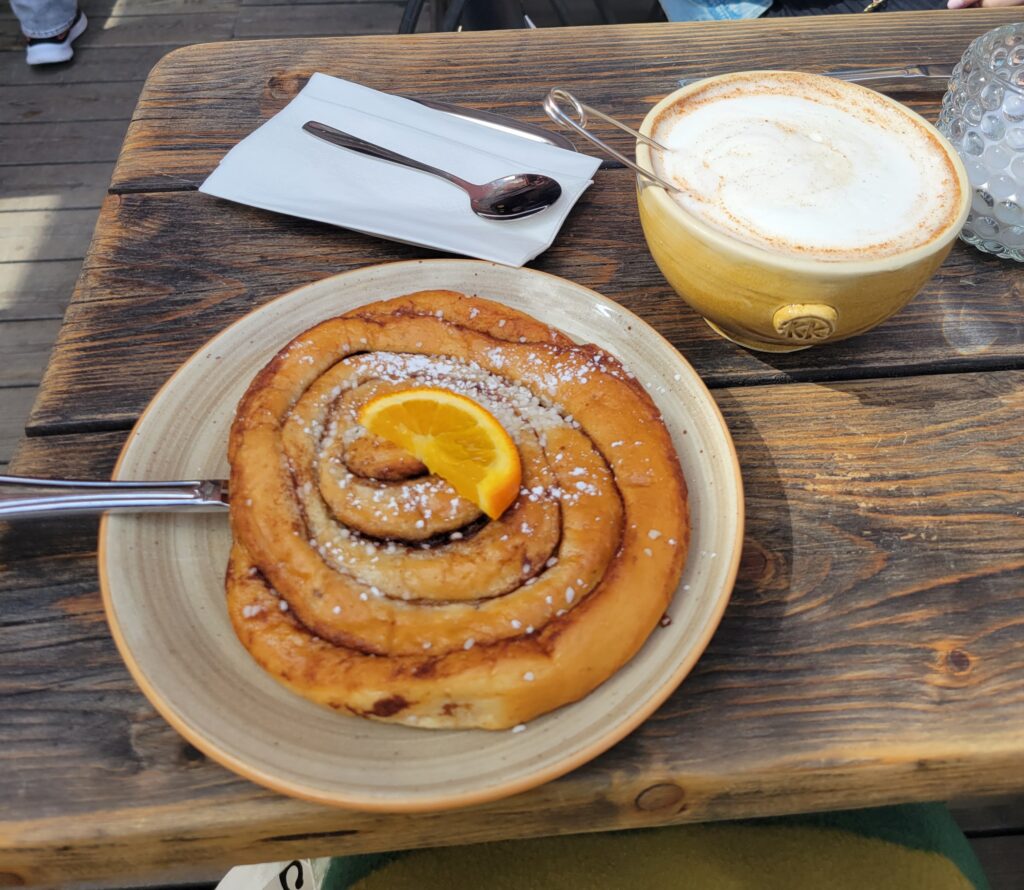One thing I am grateful for in this study abroad experience is the opportunity to experience concepts that maybe would not be as meaningful or easily applicable to me if we learned about it within the classroom. My program is a faculty-led psychology program focusing on public policy and family wellbeing in Sweden. We have had the opportunity to visit many agencies and organizations that affect family and child wellbeing within Sweden. This provides the unique opportunity of seeing cultural values of Sweden arise in conversation of policy and experiences with many of the visits.
For example, when visiting with the Swedish Institute, an agency that promotes interest in Sweden abroad, we found that creating a trustworthy and functional system is very important to Sweden’s government and policy. However, this finding became a consistent trend in our visits. In our visit with a representative from Swecare, a healthcare organization in Sweden, we learned how trust in the healthcare systems is manifested in a trusting relationship between patients and doctors and public support for a tax-funded healthcare system that people trust will function effectively for the benefit of those in need. As this emphasis on trust is often not expressed in the U.S., trust in government and systems became a very important topic of discussion in our understanding of policy comparisons between the U.S. and Sweden.
Additionally, maintaining a work-life balance was an important aspect of culture that differs greatly from the U.S. This emphasis became evident not only in policy, such as providing generous maternal and paternal leave, but also in our daily experience of fika. Fika is a break from work typically for coffee and a pastry to socialize and relax. This break from work that we experienced at many of our agency visits provided us the opportunity to experience the emphasis of work-life balance in Swedish culture. Because we were able to both discuss policy related to work-life balance, but to also experience one way that this emphasis on balance is manifested in the workday, we were able to experience and engage with the cultural life of Sweden’s workplaces.
Visiting these agencies and interacting with individuals in Sweden provided a unique opportunity to not only learn the cultural values implemented in public policy but to also see and experience how these values are manifested in the culture. This opportunity to interact with and learn about the culture in Sweden allowed us to learn through experience and apply our experiences with culture in the U.S. to our understanding of the impact of public policy. We had the opportunity to ask questions in our visits and engage with the content beyond what we could learn from a textbook on the subject. This allowed us to understand the impact of public policy on family wellbeing in a more comprehensive and meaningful way. By studying abroad and learning through experience, I have had the opportunity to engage with individuals in the culture, ask questions to understand the impact of wellbeing in a meaningful way, and have some amazing coffee and pastries.

